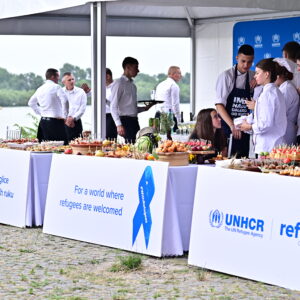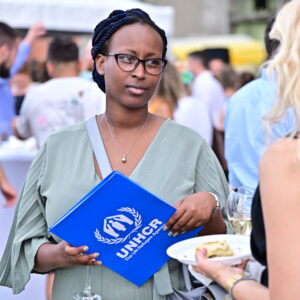Taking a closer look into the event that shines a light on refugees and the challenges they’re faced with
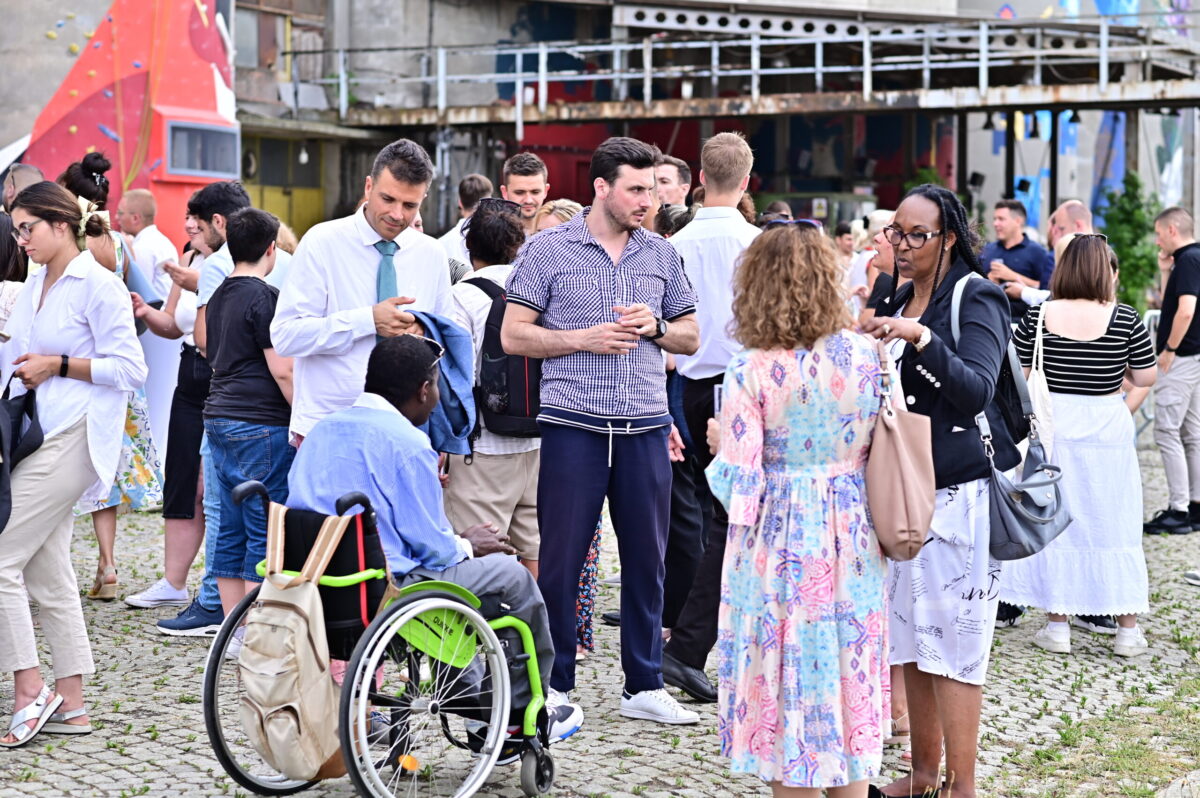 World Refugee Day 2024 in Serbia was a vibrant celebration of values such as unity and cultural exchange, but also an important reminder of the ever-growing necessity for solidarity and empathy.
World Refugee Day 2024 in Serbia was a vibrant celebration of values such as unity and cultural exchange, but also an important reminder of the ever-growing necessity for solidarity and empathy.
A collaborative cooking session kicked off the festivities, bringing together refugees from Iraq, Iran, and Ukraine with students from Belgrade’s Hospitality and Tourism School.
International chefs from the embassies of France, Italy, and the USA added their culinary expertise to the event. This exchange went beyond just food, as participants shared not only their traditional dishes but also their personal stories.
A fusion of cultures filled the air at the World Refugee Day Reception. Chefs from various backgrounds collaborated to create a delectable international feast. Karox from Iraq partnered with Nikola, an American diplomat, while Svitlana from Ukraine shared culinary expertise with Francesco, an Italian chef. Neda and Farah from Iran joined forces with Serbian chefs Zoran and Dragana to prepare a delightful spread.
The evening’s formal gathering at Belgrade’s Silos Cultural Center was a mosaic of dignitaries, diplomats, refugees, and humanitarian organizations. UNHCR Representative Soufiane Adjali and Serbia’s Deputy Commissioner for Refugees, Svetlana Velimirović, shed light on the global displacement crisis, highlighting the staggering number of 120 million forcibly displaced people worldwide while commending Serbia’s humanitarian efforts.
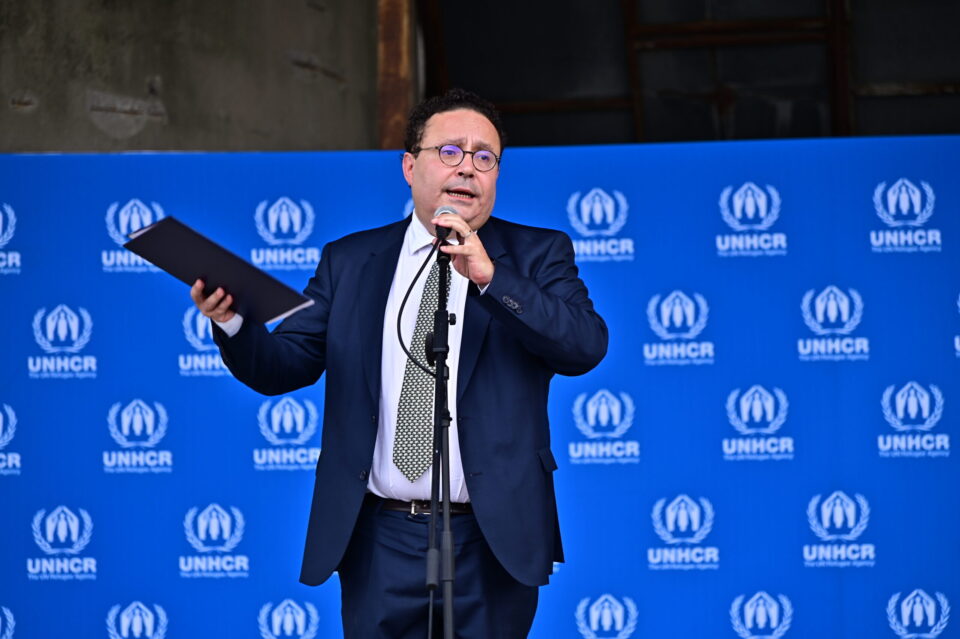 A powerful advocate for refugee rights, actress Branka Katić, a UNHCR High Profile Supporter, graced the event. Her speech resonated with the World Refugee Day theme “For a world where refugees are welcomed,” highlighting the shared vulnerability of all people and the importance of global unity.
A powerful advocate for refugee rights, actress Branka Katić, a UNHCR High Profile Supporter, graced the event. Her speech resonated with the World Refugee Day theme “For a world where refugees are welcomed,” highlighting the shared vulnerability of all people and the importance of global unity.
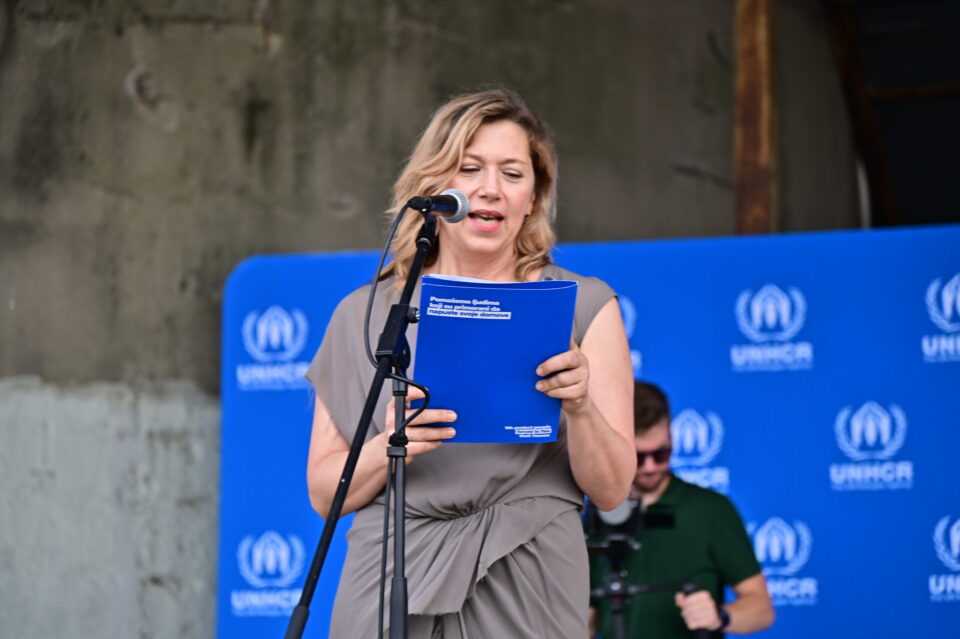
A fusion of cultures filled the air at the World Refugee Day Reception
The multicultural feast showcased an array of delectable dishes, including Iranian samosas, Iraqi shawarma, Ukrainian biloucha, and Serbian gibanica.
In a symbolic gesture of solidarity, the City of Belgrade illuminated the central fountain at Slavija Square in the UNHCR’s signature blue, raising awareness and showcasing their support for the refugee cause.
Photo: UNHCR/Kharim Nsengiyumva
UNHCR Warns Against Apathy and Inaction Amid a Spike in Forced Displacement
Overall numbers rise to 120 million by May 2024; conflicts from Sudan to Gaza and Myanmar are creating new displacement and urgently require resolution
Forced displacement surged to historic new levels across the globe last year and this, according to the 2024 flagship Global Trends Report from UNHCR, the UN Refugee Agency.
The rise in overall forced displacement – to 120 million by May 2024 – was the 12th consecutive annual increase and reflects both new and mutating conflicts and a failure to resolve long-standing crises. The figure would make the global displaced population equivalent to the 12th largest country in the world, around the size of Japan.
A key factor driving the figures higher has been the devastating conflict in Sudan: at the end of 2023, 10.8 million Sudanese remained uprooted. In the Democratic Republic of the Congo and Myanmar, millions were internally displaced last year by vicious fighting. UNRWA estimates that by the end of last year, up to 1.7 million people (75 percent of the population) had been displaced in the Gaza Strip by the catastrophic violence, most of whom were Palestine refugees. Syria remains the world’s largest displacement crisis, with 13.8 million forcibly displaced in and outside the country.
Filippo Grandi, the UN High Commissioner for Refugees, urged the international community to address the root causes of displacement
“Behind these stark and rising numbers lie countless human tragedies. That suffering must galvanize the international community to act urgently to tackle the root causes of forced displacement,” said Filippo Grandi, the UN High Commissioner for Refugees. “It is high time for warring parties to respect the basic laws of war and international law. The fact is that without better cooperation and concerted efforts to address conflict, human rights violations, and the climate crisis, displacement figures will keep rising, bringing fresh misery and costly humanitarian responses.”
The largest increase in displacement figures came from people fleeing conflict who remain in their own country, rising to 68.3 million people according to the Internal Displacement Monitoring Centre – up almost 50 percent over five years.
The number of refugees, and others in need of international protection, climbed to 43.4 million when including those under UNHCR and UNRWA’s mandates. The vast majority of refugees are hosted in countries neighbouring their own, with 75 percent residing in low- and middle-income countries that together produce less than 20 percent of the world’s income.
Filippo Grandi, the UN High Commissioner for Refugees, urged the international community to address the root causes of displacement
The report showed that worldwide, more than 5 million internally displaced people and 1 million refugees returned home in 2023. These figures show some progress towards longer-term solutions. Positively, resettlement arrivals increased to almost 160,000 in 2023.
“Refugees – and the communities hosting them – need solidarity and a helping hand. They can and do contribute to societies when they are included,” Grandi added. “Equally, last year millions of people returned home, representing an important glimmer of hope. Solutions are out there – we’ve seen countries like Kenya lead the way in refugee inclusion – but it takes real commitment.”
The report also offered a new analysis of the climate crisis and how it increasingly and disproportionately affects forcibly displaced people.
Given the immense challenges facing 120 million forcibly displaced people outlined in the Global Trends report, UNHCR remains steadfast in its commitment to delivering new approaches and solutions to help people forced to flee their homes, wherever they are.
